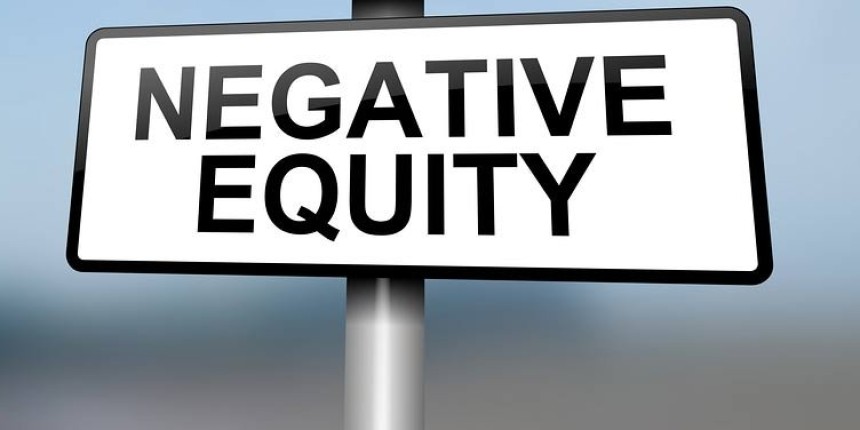
How To Avoid Negative Equity On Your Car Loan
Negative equity on your car loan can be expensive in the long run and possibly could damage your credit. Learn how to avoid it.
What Is Negative Equity on Your Car Loan
When you take out a car loan, you're making a significant financial commitment. However, the concept of negative equity can complicate this commitment and impact your financial situation in unexpected ways. In this article, we'll explore what negative equity is, how it occurs, and its implications for your finances.
What Is Negative Equity?Negative equity, also known as being "underwater" or "upside down" on a loan, occurs when the outstanding balance on your car loan exceeds the current market value of your vehicle. Essentially, it means you owe more on your car than it's worth. This situation can arise for various reasons, and understanding it is crucial for managing your finances effectively.
How Does Negative Equity Occur?Several factors can contribute to negative equity:
- Depreciation: Cars lose value over time, often at a rapid pace compared to other assets. Depreciation is the decline in a vehicle's value due to age, wear and tear, and market trends. When you purchase a new car, it can lose a significant portion of its value as soon as you drive it off the lot. If you have a loan balance that’s not in line with this drop in value, you might find yourself in negative equity.
- High Loan-to-Value Ratio: If you finance a high percentage of the car’s purchase price or have a long loan term, your loan-to-value ratio can be unfavorable. For instance, if you make a small down payment or opt for a longer repayment period, you might owe more on the car than it's worth for a considerable portion of the loan term.
- Interest Rates: High interest rates on your car loan can also contribute to negative equity. Interest increases the total amount you owe over time, making it harder to build equity in your car.
- Early Loan Repayment: If you make only the minimum payments on your loan, especially in the early years, you might not be reducing the principal balance quickly enough to keep pace with depreciation. This can lead to a situation where you owe more than the car’s value.
- Vehicle Condition: The condition of your vehicle affects its resale value. Poor maintenance or significant wear and tear can decrease its market value, potentially leading to negative equity if the depreciation outpaces your loan repayments.
Negative equity can have several financial implications:
- Difficulty Selling or Trading In: If you want to sell or trade in your car, having negative equity complicates the process. You would need to cover the difference between the loan balance and the car's selling price out of pocket. This can be a financial burden and may affect your ability to purchase a new vehicle.
- Increased Loan Burden: If you roll the negative equity into a new loan, you might end up with a larger debt. This means higher monthly payments and more interest paid over the life of the loan. It’s important to consider how this additional debt impacts your overall financial health.
- Risk of Repossession: If you face financial difficulties and struggle to keep up with loan payments, the risk of repossession increases. Repossession can have severe consequences for your credit score and financial stability.
- Limited Financing Options: Lenders might view you as a higher risk if you have a history of negative equity. This could limit your financing options and potentially result in higher interest rates for future loans.
Managing and avoiding negative equity involves a combination of smart financial practices and strategic planning. Here are some tips to help you stay on top of your car loan:
- Make a Larger Down Payment: A substantial down payment reduces the amount you need to finance, which can help prevent negative equity. Aim to put down at least 20% of the vehicle's purchase price if possible.
- Opt for a Shorter Loan Term: Shorter loan terms generally mean higher monthly payments but lower overall interest costs. This approach can help you build equity more quickly and reduce the risk of being underwater on your loan.
- Choose a Vehicle with Slower Depreciation: Some vehicles depreciate more slowly than others. Research models known for their retained value and consider purchasing a used car that doesn’t lose value as rapidly as new ones.
- Make Extra Payments: If you can afford it, making extra payments toward your car loan principal can help you build equity faster. Even small additional payments can reduce the balance more quickly and mitigate the effects of depreciation.
- Regular Maintenance: Keeping your vehicle in good condition can help preserve its value. Regular maintenance and timely repairs can prevent the car’s value from dropping too quickly.
- Refinance Your Loan: If you’re stuck in a situation with negative equity but have improved your credit score or financial situation, consider refinancing your loan. Refinancing can potentially lower your interest rate and reduce your monthly payments, making it easier to manage your loan.
- Avoid Unnecessary Add-Ons: When purchasing a vehicle, be cautious about adding expensive extras or opting for extended warranties. These add-ons can increase the total cost of the loan and contribute to negative equity.
Negative equity on a car loan can be a challenging situation, but understanding its causes and implications can help you make informed decisions. By adopting proactive financial strategies, such as making larger down payments, choosing shorter loan terms, and maintaining your vehicle, you can minimize the risk of ending up underwater on your car loan.
Always assess your financial situation carefully before making major purchases and take steps to manage your loan effectively. By doing so, you can ensure that you stay on top of your finances and avoid the pitfalls of negative equity.





